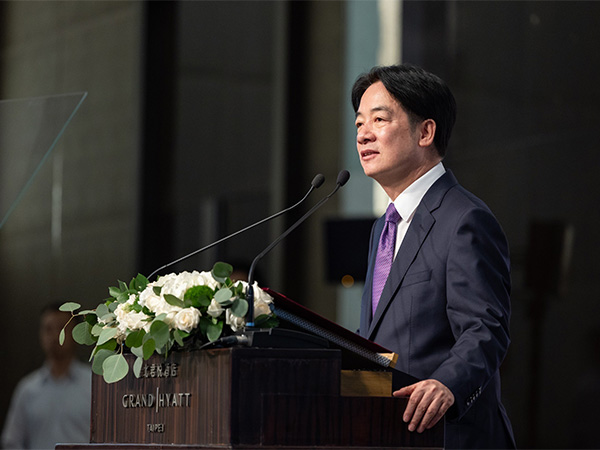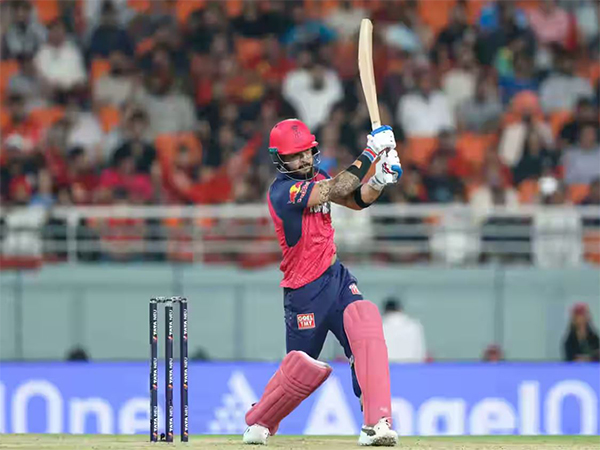
Human rights activist raises voice against women atrocities, discrimination in Pakistan
Apr 05, 2025
Glasgow [Switzerland], April 5 : Anila Gulzar, a prominent human rights activist from Pakistan, has condemned gender discrimination and atrocities against women in Pakistan.
Anila, who belongs to the Christian minority group in Pakistan, stated, "Pakistan has long struggled with gender inequality and systemic violence against women. Despite legal frameworks designed to protect women's rights, the reality remains grim, with women facing widespread discrimination, harassment, honour killings, forced marriages, and restricted access to education and employment. The plight of Pakistani women has drawn international attention, yet meaningful change remains elusive due to entrenched societal norms, weak law enforcement, and a lack of political will."
She highlighted that in Pakistan, discrimination against women starts at birth and persists throughout their lives. A strong preference for male children results in unequal access to healthcare, nutrition, and education for girls. In numerous households, girls are viewed as an economic burden, which perpetuates cycles of early marriage and restricts their career prospects.
She stated that Pakistan lags behind many developing countries in terms of education. "According to the World Economic Forum's Global Gender Gap Report, Pakistan ranks among the lowest in gender equality, particularly in access to education and economic participation. Rural areas, where patriarchal customs dominate, see a much higher rate of female school dropouts due to family restrictions, early marriages, or financial constraints," expressed Anila.
She further condemned the situation of Pakistani women in the workplace. She lamented, "Women make up only 22 per cent of the workforce in Pakistan, with many facing harassment, wage gaps, and fewer opportunities for leadership positions. The corporate sector remains largely male-dominated, and women in industries such as media, politics, and law enforcement often experience systemic bias, sexual and threats to their safety."
One of the most severe forms of violence against women in Pakistan is honour killing, where women are killed by their own family members for supposedly bringing "shame" to the family, as cited by the human rights activist. These killings are frequently connected to actions such as marrying for love, rejecting arranged marriages, or even small accusations of misconduct.
The Human Rights Commission of Pakistan (HRCP) has reported that approximately 1,000 women are killed annually in honour-based crimes, although the real number is likely higher due to under-reporting.
A significant case of violence against women in Pakistan was the 2016 murder of social media personality Qandeel Baloch, who was strangled by her brother for defying societal norms and living an independent life. Although her case gained international attention, many other victims remain unnoticed and unpunished due to legal loopholes that allow family members to "forgive" the perpetrators, granting them impunity, Anila Gulzar cited.
She further cited that rape cases in Pakistan have risen sharply, with many victims receiving little to no justice due to victim-blaming and societal stigma. A particularly shocking case in 2020 involved a woman being gang-raped on a highway in Lahore in front of her children, which sparked national outrage. However, the response from law enforcement was appalling, as a senior police officer blamed the victim for traveling alone at night. Marital rape is still largely unrecognised as a crime, leaving many women vulnerable within their own homes. Victims of sexual violence often face enormous pressure to remain silent due to fear of retaliation, honour-based violence, or a lack of support from authorities.
Anila focused that despite Pakistan having laws meant to protect women, their enforcement remains weak. Laws such as the Anti-Rape Ordinance and the Protection of Women Act exist, but are ineffective in practice due to corruption, police negligence, and deeply rooted misogyny within the judicial system. In many instances, rapists and honour killers are able to escape justice through out-of-court settlements or "blood money" agreements, further deterring victims from seeking justice. Women who report violence often face harassment, threats, or pressure to withdraw charges.
She condemned the issue of early marriage and lamented that early and forced marriages continue to be a serious issue in Pakistan, particularly in rural areas. Although the legal minimum marriage age for girls is set at 16 (and 18 in some provinces), many underage girls are forced into marriage due to economic difficulties, cultural practices, or tribal customs. The practice of Vani, where girls are given in marriage to settle family disputes, persists despite being banned. Victims of forced marriages often suffer from domestic violence, lack of education, and complete dependence on their husbands.
Misinterpretations of religious teachings are often used to justify discriminatory practices against women. Women advocating for their rights frequently face backlash from conservative groups, who accuse them of promoting "Western values" or challenging religious norms.
Despite these challenges, Pakistani women continue to fight for their rights. Movements like Aurat March have gained momentum, with women across the country demanding justice, equality, and an end to gender-based violence. Social media has provided a platform for survivors to share their stories and expose injustices. Pakistani female activists, journalists, and lawyers are playing a vital role in challenging discriminatory laws and practices.
The situation of women in Pakistan remains a critical human rights issue. While there have been advancements in legal reforms and awareness, systemic gender discrimination and violence continue to hold women back.

























